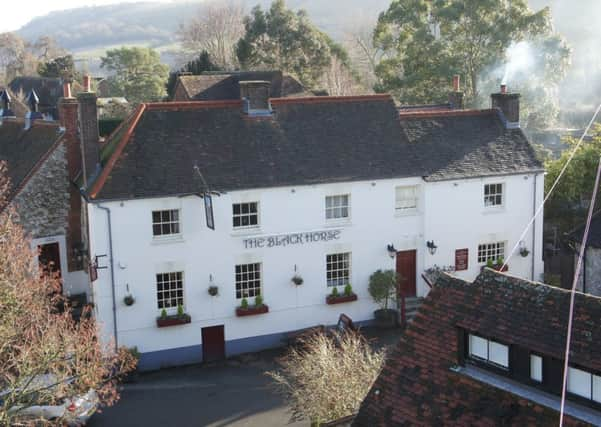Parish council speaks out against claims made by Black Horse pub owner


Last week, the owner of Amberley’s Black Horse pub Peter Marston spoke out against the parish council, claiming that it ‘did nothing’ to acquire the property.
Amberley Parish Council chairman Carol Handerson said that Mr Marston was ‘incorrect’ and had not made an ‘offer to sell’ to the parish, but an offer to ‘consider to sell’.
Advertisement
Hide AdAdvertisement
Hide AdShe said: “Mr Marston wrote to Amberley Parish Council at the end of January with an offer to consider selling the Black Horse (note: not an offer to sell) if the council accepted to pay £500,000. The offer to consider sale was open for 28 days, a period which would have ended before the date of the appeal.
“The statement ‘the Parish Council did nothing’ is incorrect. The Parish Council met with and took legal advice from the official solicitors for the Sussex Association of Local Councils.
“It looked into ways in which funds could be raised and took advice from the Plunkett Foundation, a charity which specialises in advising on community projects. The council debated the matter at length and advised Mr Marston of their deliberations. He seems to have overlooked the two letters the council sent to him.
“After much deliberation, the council came to the decision that £500,000 was significantly in excess of the current market value for the pub and felt it inappropriate to make any offer under the conditions set out by Mr Marston.
Advertisement
Hide AdAdvertisement
Hide Ad“Following the appeal dismissal and in light of the importance of the pub to the village and its status as an asset of community value, the Parish Council considered registering an interest in the pub but did not want to stand in the way of a more financially sound bid from another community group.
“The Black Horse Action group wrote to Mr Marston within the six week period, requesting an opportunity to discuss ways in which the community might purchase the freehold of the pub.”